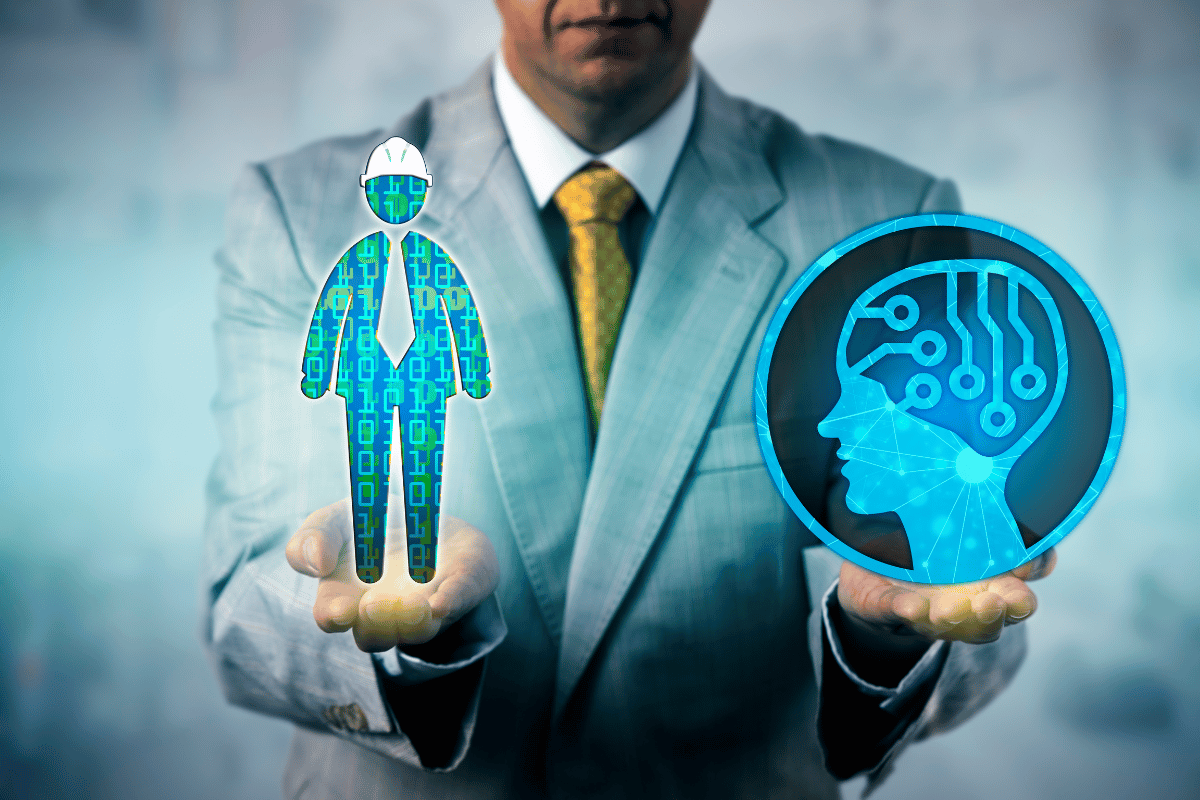Navigating the AI Era: Essential Skills for a Future-Proof Career
As the dawn of artificial intelligence (AI) reshapes the landscape of our professional and personal lives, there’s a growing awareness about the kind of skills humans need to thrive in this new world. The AI era beckons, but many find themselves questioning: How does one prepare for such a future? The truth is, our current education system, with its roots in age-old practices, may not fully equip us for the rapidly evolving job market dominated by AI and technology. This article dives deep into the idea of ‘future-proofing’ your career — transforming you into an individual empowered by creativity, adaptability, and a keenness for self-directed learning. Let’s unravel the inadequacies of current educational frameworks and chart a comprehensive path to personal and professional growth in an AI-dominated future.
The Inadequacies of the Current Education System in an AI-Dominated Future
The traditional education model, with its focus on memorization and obedience, increasingly appears out of step with the needs of today’s dynamic job market. This system, likened by some to the “training of slaves,” emphasizes narrow, task-specific skills and compliance — attributes that, while once valuable, may limit the exploration of personal interests and the development of critical future-proof skills. In an era where AI systems can be programmed to perform specific tasks with far greater efficiency than humans, relying solely on such education can leave individuals at risk of becoming obsolete. This stark realization prompts a necessary exploration into alternative educational paths that value resilience, creativity, adaptability, and self-directed learning over traditional career-specific training.
Cultivating Personal Interests and Setting Goals for True Education
True education transcends the boundaries of a classroom. It’s an enduring journey that cultivates personal interests and sets goals beyond societal expectations. In a world where external pressures can often dictate one’s purpose, embracing personal interests becomes an act of resistance and empowerment. It’s about recognizing that everyone has unique passions and talents that, when nurtured, can pave the way for a fulfilling and resilient career. Setting personal goals fosters a sense of direction and motivation, essential in an unpredictable job market. This self-directed approach to learning encourages adaptability and resilience, qualities that are invaluable in navigating the complexities of a future marked by AI and technological advancements.
Essential Skills to Future-Proof Your Career
In the quest to future-proof careers, certain skills emerge as indispensable. These include logical thinking, understanding of statistics, rhetoric (the art of persuasion and communication), research methodologies, practical psychology (to better understand human behavior), investment savvy, and agency (the capacity to act independently and make free choices). Mastery of these skills lays a robust foundation for continuous learning and adaptability, enabling individuals to navigate the complexities of an evolving career landscape. Paired with specific technical know-how, such as marketing, sales, or coding, these skills ensure that individuals remain competitive and flexible, able to pivot as new technologies and job opportunities arise.
Combining Technical Know-How and Personal Interests
Becoming irreplaceable in an AI-dominated world means blending technical know-how with personal interests. It’s about leveraging one’s passions and creativity to solve problems and innovate within a chosen domain. This blend not only fosters job satisfaction but also encourages continuous learning and growth. Whether it’s integrating tech skills with a love for the arts or applying data analysis in the field of environmental conservation, combining these elements can lead to groundbreaking work and a fulfilling career path. Mastery in a domain, therefore, is not a static achievement but a dynamic process of creativity, entrepreneurship, and problem-solving, influenced by personal experiences and passions.
Leveraging Technology for Skill Acquisition and Career Planning
Embracing technology is not just about learning how to use it but understanding how it can be harnessed to control our futures. Technology in education, skill acquisition, and career planning plays a pivotal role in personal growth and success. From online courses that offer the flexibility to learn new skills at one’s own pace to digital tools that provide insights into emerging job trends, technology can be a powerful ally. It offers the means to gain a competitive edge in the job market, ensuring individuals are prepared to confront and capitalize on the opportunities and challenges of an AI-dominated future. By adopting a proactive attitude towards technology and its potential, we can steer our professional journeys towards meaningful and secure futures.
In our journey through the “AI era,” understanding the landscape of future careers requires a shift in perspective — from viewing education as a means to an end to embracing it as a lifelong pursuit. The essence of future-proofing our careers lies in cultivating a mindset geared towards continuous learning, resilience, and adaptability. It involves reassessing our relationship with technology, from passive consumers to active learners and innovators. By fostering a marriage between our personal interests and the essential skills needed in a future dominated by AI, we not only navigate the current uncertainties but pave the way for a fulfilling and robust career. Let us embrace this journey with openness, creativity, and enthusiasm, for in the era of AI, these are the qualities that will truly define our success.
Glossary:
Future-Proof Skills
- Skills that are likely to remain in demand or become even more important in the future, despite changes in technology or the economy. These skills can include technical abilities, soft skills, and cross-disciplinary knowledge that enable individuals to adapt and thrive in various future scenarios.
AI-Dominated Future
- A future scenario where artificial intelligence (AI) technologies have a major influence on society, the economy, and the job market. In this future, AI could automate many tasks currently performed by humans, leading to significant changes in how work is done and which skills are in demand.
Self-Directed Learning
- A learning approach where individuals take the initiative to identify their learning needs, set goals, find resources, and assess their progress without significant direction from others. This skill is increasingly important for adapting to new information and technologies over a lifetime.
Adaptability
- The ability to adjust to new conditions or changes in the environment. In a professional context, adaptability refers to the willingness and ability to embrace change, learn new skills, and alter approaches in response to new challenges and opportunities.
Creativity
- The ability to generate or recognize ideas, alternatives, or possibilities that may be useful in solving problems, communicating with others, and entertaining ourselves and others. Creativity involves thinking outside the box and coming up with innovative solutions.
Practical Psychology
- The application of psychological principles and research to solve practical problems of human and animal behavior and experience. It encompasses areas such as understanding human behavior, motivation, decision-making, and the psychological aspects of interaction with technology.
Investment
- The allocation of resources (such as time, money, effort) in the expectation of some benefit in the future. In finance, investment is the purchase of goods that are not consumed today but are used in the future to create wealth.
Technology in Education
- The use of technological tools, resources, and systems to improve educational processes and outcomes. This includes e-learning, digital classrooms, online resources, and the integration of AI and other technologies to enhance learning and teaching.
Personal Growth
- An ongoing process of understanding and developing oneself in order to achieve one’s fullest potential. Personal growth involves expanding one’s knowledge, skills, self-awareness, and overall well-being.
Career Planning
- The process of setting career objectives and mapping out the path to achieve them. Career planning involves self-assessment, exploring career options, setting short-term and long-term goals, and taking the necessary steps to pursue the desired career path.






